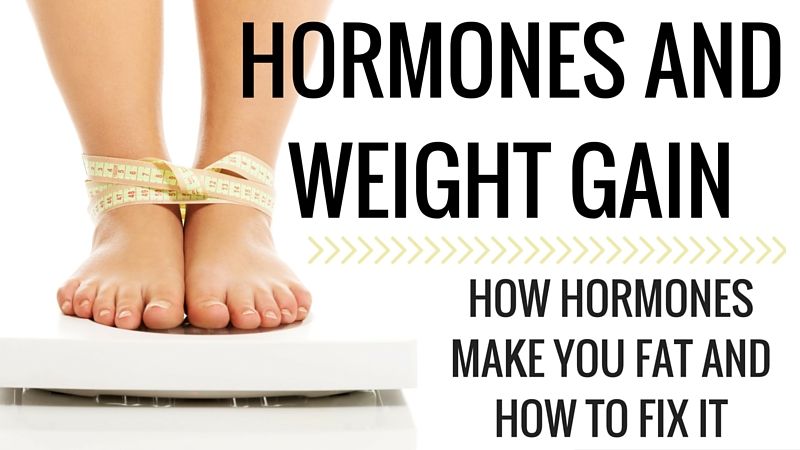Physiology
A Simple Way to Fix the Hormones That Make You Fat
“Insulin shunts sugar to fat. Insulin makes fat. More insulin, more fat. Period.”
Some people believe that obesity is caused by eating too much and exercising too little.
In other words, the behavior is driving the weight gain and it is the individual’s fault that this happened.
However, Lustig does not believe this to be the case, at least not in the majority of people.
He believes that the behavior, increased food intake and decreased exercise, is secondary to changes in the function of hormones.
It turns out that there are well defined biological mechanisms that can explain how the foods we eat disrupt the function our our hormones, which makes us eat more and gain weight.
In other words, we’re not getting fat because we’re eating more, we’re eating more because we’re getting fat.
Obesity is an incredibly complex disorder and scientists don’t agree on what it is that causes it.
However, it is well established that hormones have a lot to do with it.
A key player here is a hormone called leptin.
This hormone is secreted by the fat cells. It sends a signal to the brain that we have enough energy stored and that we don’t need to eat.
Obese people have a lot of body fat and a lot of leptin in their bloodstream. But the problem is that the leptin isn’t getting to the brain to send that signal.
Put simply, the brain doesn’t “see” the leptin. It doesn’t see that we have enough fat stored and therefore thinks that we’re starving. This is known as leptin resistance and is believed to be a leading driver of obesity.
When people are leptin resistant, it is the hormones that drive the increased food intake. We’re eating more because the brain doesn’t see the leptin and thinks we’re starving.
Trying to exert willpower against the leptin-driven starvation signal is next to impossible.
Another hormone, which Lustig (and many other respected scientists) believe to be a major culprit, is called Insulin.
Insulin is the hormone that tells our cells to pick up glucose from the bloodstream. It is also the major energy storage hormone in the body. It tells our cells to store energy, either as glycogen or fat.
one of the ways that insulin contributes to obesity, is by blocking the leptin signal in the brain.
For that reason, having chronically elevated insulin levels could be one of the reasons that people become leptin resistant.
High insulin -> No leptin signal -> The brain doesn’t “see” that we have plenty of energy stored and thinks we’re starving, making us eat.
Another thing that insulin does, is sends signals to the fat cells, telling them to store fat and to hold on to the fat that they already carry.
It seems simple and makes a lot of sense, but I’d like to point out that many other researchers do not believe this to be true.
A key feature of the metabolic syndrome and type II diabetes is insulin resistance.
What insulin resistance means is basically that your body’s cells don’t see the insulin signal and therefore the pancreas need to make even more insulin.
This leads to a condition called hyperinsulinemia, which basically means that insulin levels are high all the time.
Of course, insulin is not a “bad” hormone. It is absolutely essential for survival. But when it becomes chronically elevated, it can start to cause major problems.
But what is it that causes insulin to go up? According to Lustig, excess dietary fructose from added sugars is one of the leading drivers of insulin resistance, and insulin resistance leads to chronically elevated insulin levels.
There is actually quite a bit of evidence showing that when people eat a LOT of fructose (from added sugars, not fruit), it can lead to insulin resistance, high insulin levels and all the related metabolic problems.
But it’s important to realize that even IF dietary fructose from added sugars is one of the main causes of insulin resistance, simply removing added sugar is NOT sufficient to reverse obesity and associated metabolic dysfunction.
Therefore, avoiding sugar is an important prevention strategy, but it won’t be very effective as a cure.
If high insulin levels are causing leptin resistance and weight gain (which is controversial), then reversing it is very simple.
The main stimulus for insulin secretion is dietary carbohydrate. Protein also stimulates insulin release, but carbohydrates are THE major factor.
Many studies show that eating less carbs (a low-carb diet) leads to drastically reduced insulin and automatic weight loss.
When people cut carbs, they lose weight. Without counting calories. Whatever the mechanism is, it works.
So… you don’t need to wait for the scientists to reach a consensus about what exactly it is that causes obesity, because whatever the mechanism is, there is already a simple way to reverse it.
Even though low-carb diets aren’t any sort of “magical” solution to these problems, we do know that they are, at the very least, much better than the failed low-fat diet that is still being peddled today.

